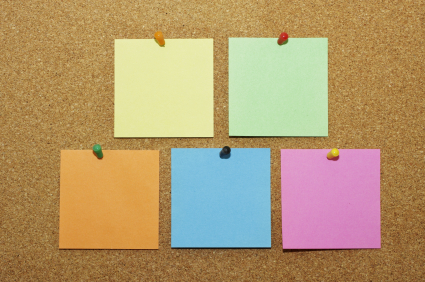Author Gabrielle Zevin has said, “I have so much paperwork. I’m afraid my paperwork has paperwork.” Most of us can relate. The point of mediation is to create an opportunity for parties to communicate and work towards resolving a conflict. Documentation is a part of it, but paperwork doesn’t have to overshadow everything. Is note-taking simply more paperwork that you have to complete in the mediation process?
During the process, the mediator may take notes and/or use a flipchart to record ideas. This might include the budding agreement, which will later be transferred to paper. Whether or not the mediator does this depends on his/her personal approach. As well, your own approach will dictate whether or not you choose to take notes. If you hated taking notes in school, this is at least a small relief as you go into mediation! But taking notes does have a number of purposes:
- Sometimes, I use note-taking as a tool to control interruptions.. I can say, “How about you write that idea down. I know you don’t want to forget it so put all the good ideas that are coming to you down on paper and I will make sure we get to them after Jennifer is finished speaking.”
- It can help people focus thoughts and allows them to jot down ideas to which they want to respond. This is helpful because we want all the good ideas we can get on the table.
- Writing notes can help keep us calm and centered.
- Some of us are doodlers and need something to do with our hands.
- As a mediator, I use it to make sure I am capturing interests and if I hear the cornel of a possible solution I don’t want to forget to come back to it in the option generation stage of the mediation.
Mediators usually make writing materials available to participants so they can opt in or not. So that’s one chore that is not usually required (though your mediator may suggest it if you’re inclined to interrupt!). One situation when you cannot avoid writing is the Mediation Agreement, which all parties need to sign and which we’ll talk about in another post.





